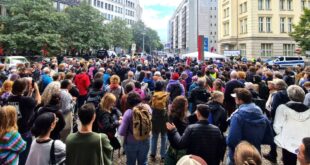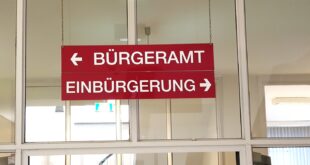Here is a list of public holidays in Germany in 2017, plus regional holidays, daylight savings, school holidays, Mother’s and Father’s Days and other important dates in the German calendar.
There are nine official German public holidays that are celebrated nationally each year, plus regional holidays that are only celebrated in certain Federal States. This means that some states have more holidays than others; lucky citizens can enjoy up to 13 days of public holidays a year, one of the highest public holiday entitlements in Europe.
Many of the public holidays are religious and date back centuries. A more recent holiday is the Day of German Unity on 3 October, which commemorates the anniversary of German reunification in 1990. You can see which public holidays coincide with Germany’s top festivals, which are a great way to experience German culture.
Besides German Unity Day, public holidays in Germany are determined by the federal states. If a German holiday falls on a weekend, the public holiday is not typically transferred to a weekday. Many businesses – but not police stations or hospitals – close during national and regional public holidays.
Official public holidays in Germany 2017
(N) = National (R) = Regional
Sunday 1 January: New Year’s Day (Neujahrstag) (N)
Friday 6 January: Epiphany (Heilige Drei Könige) (R) – Baden-Württemberg, Bavaria, Saxony-Anhalt
Friday 14 April: Good Friday (Karfreitag) (N)
Monday 17 April: Easter Monday (Ostermontag) (N)
Monday 1 May: Labour Day (Maifeiertag) (N)
Thursday 25 May: Ascension Day (Christi Himmelfahrt, 40 days after Easter) (N)
Monday 5 June: Pentecost Monday (Pfingstmontag) (N) – seventh Monday after Easter.
Thursday 15 June: Corpus Christi (Fronleichnam) (R) – Baden-Württemberg, Bavaria, Hesse, North Rhine-Westphalia, Rhineland-Palatinate, Saarland, and some local authorities in Saxony and Thuringia.
Tuesday 8 August: Peace Festival (R) – Bavaria (Augsburg)
Tuesday 15 August: Assumption Day (Maria Himmelfahrt) (R) – Saarland and some local authorities in Bavaria.
Tuesday 3 October: Day of German Unity (Tag der Deutschen Einheit) (N)
Tuesday 31 October: Reformation Day (Reformationstag) (N) – celebrated as a German national holiday only in 2017 to celebrate the 500th anniversary, although typically it is a regional holiday in Brandenburg, Mecklenburg-Western Pomerania, Saxony, Saxony-Anhalt and parts of Thuringia.
Wednesday 1 November: All Saints’ Day (Allerheiligentag) (R) – Baden-Württemberg, Bavaria, North Rhine-Westphalia, Rhineland-Palatinate and Saarland.
Wednesday 22 November: Day of Prayer and Repentance (Buß-und Bettag, Wednesday before November 23) (R) – Saxony.
Monday 25 December: Christmas Day (Weihnachtstag) (N)
Tuesday 26 December: Boxing Day/St Stephen’s Day (Stephanstag) (N) – also known as the second day of Christmas.
Other important dates
Monday 27 February: Shrove Monday
Tuesday 28 February: Shrove Tuesday/Carnival
Wednesday 1 March: Ash Wednesday/Carnival
Sunday March 26: Daylight saving time (DST) starts – clocks go forward one hour.
May 5: Father’s Day (Vatertag, also known as Männertag, Men’s Day, or Herrentag) – coincides with Ascension Day and can be a family celebration or even celebrated by an outing with male friends.
Sunday 14 May: Mother’s Day (second Sunday of May)
Tuesday 23 May: Constitution Day
Saturday 23 September: Oktoberfest starts
Sunday 29 October: Daylight saving time (DST) ends – clocks go back one hour.
Thursday 9 November: Fall of the Berlin wall
Wednesday 6 December: St Nicholas Day
June 21 and December 21: Solstices – longest and shortest days of the year
Source: Expatica
 THE AFRICAN COURIER. Reporting Africa and its Diaspora! The African Courier is an international magazine published in Germany to report on Africa and the Diaspora African experience. The first issue of the bimonthly magazine appeared on the newsstands on 15 February 1998. The African Courier is a communication forum for European-African political, economic and cultural exchanges, and a voice for Africa in Europe.
THE AFRICAN COURIER. Reporting Africa and its Diaspora! The African Courier is an international magazine published in Germany to report on Africa and the Diaspora African experience. The first issue of the bimonthly magazine appeared on the newsstands on 15 February 1998. The African Courier is a communication forum for European-African political, economic and cultural exchanges, and a voice for Africa in Europe.

































